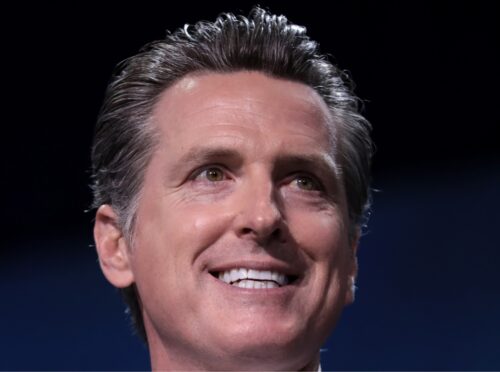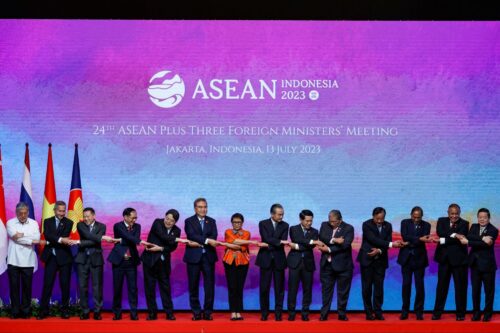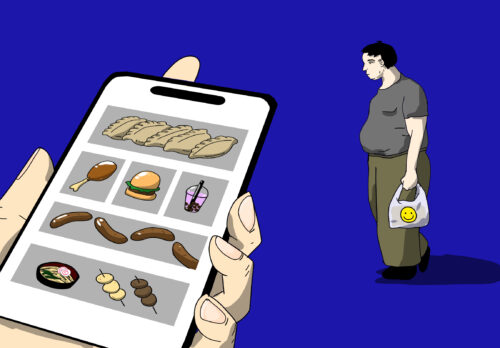Millions and millions of avocados – China’s latest top news
A roundup of the top China news for June 8, 2017. Get this free daily digest delivered to your inbox by signing up at supchina.com/subscribe.

Chinese find a taste for avocados
Avocados (鳄梨 èlí, or 牛油果 niúyóuguǒ) have never been a popular food in China since they were first introduced in 1925, but that appears to be changing rapidly. Sixth Tone has published an infographic showing that the volume of avocados imported into China grew 5,000 percent over the last four years from 31.8 to 16,000 tonnes annually. But an April report (paywall) in the Financial Times gives much higher numbers, saying that imports “from Latin American nations such as Mexico and Chile” leapt from 154 tonnes in 2012 to more than 25,000 tonnes in 2016 — that’s about 147 million avocados.
A skeptic who believes in Xi as economic reformer?
Jörg Wuttke is a former president of the European Chamber of Commerce in China with more than three decades of experience in business on the mainland working for industrial giants like ABB and BASF. He’s neither a predictable bull nor an apologist for the Communist Party. In recent years he has been frequently quoted in the media for his pessimistic views on China’s treatment of foreign companies; in March, for example, he told Deutsche Welle: “From the National People’s Congress, we again hear that foreign companies are supposed to get equal treatment…but I’m not buying this anymore.”
So it’s noteworthy that he told the South China Morning Post that he believes Xi Jinping “will turn his attention to market-oriented reforms when he’s done with his current political and military overhaul.” This is a view which was common at the time of Xi’s appointment as president, but many early believers in Xi as a reformist have questioned it after nearly five years of stalled economic reforms. In the article, Wuttke does not comment on how Xi-led reforms might affect market access for foreign companies.
More worries of Chinese influence in Australia
This week has seen a lot of reporting in the media on concerns about China’s attempts to gain political influence in Australia:
- Earlier this week we noted the Canberra Times’ article on what it called China’s “covert campaign of influence in Australia,” which rewards Chinese living Down Under who are loyal to the Party and seeks to intimidate dissenters. The same reporters followed up with a story on large donations by Chinese businesspeople to Australian political parties.
- Australian ABC broadcast a report that looks at the same themes from wealthy donors with unclear motives to Chinese Student Association (CSA) organizers in Canberra who co-ordinate with the Chinese embassy there.
- The Financial Times earlier said (paywall) that Australia is reviewing its espionage laws and banning foreign political donations over concerns that China is buying influence, and that Prime Minister Malcolm Turnbull warned that “China should always respect the sovereignty of other nations.”
- For a popular pro-Communist Party view of the spate of Western media reports on this theme, see Andrew Chubb’s translation of a screed (complete with sharable memes) from a deputy editor at nationalistic rag Global Times’ commentary department.
Billions and billions: the war chests of Chinese startup companies
From ride-hailing app Didi Chuxing with $10.2 billion of funding to “mysterious new electric automaker” WM Motors with a cool billion, Tech in Asia has produced an infographic of China’s 15 best-funded startup companies, eight of which are spin-offs from established players like Alibaba. Tech in Asia says that the “boom sectors like fintech, ride-hailing apps, and electric cars” are attracting the big money, “not ecommerce or social media.”
—Jeremy Goldkorn, Editor-in-Chief
Sinica Podcast: How does investigative reporting happen in China? A conversation with Li Xin of Caixin
The managing director of Caixin Global gives her perspective on business in China and how the media reports on it.
This issue of the The China Project newsletter was produced by Sky Canaves, Lucas Niewenhuis, Jia Guo, and Jiayun Feng. More China stories worth your time are curated below, with the most important ones at the top of each section.
BUSINESS AND TECHNOLOGY:
Fashion-related social media accounts shut down in celebrity gossip crackdown
Jing Daily reports that the Beijing Cyberspace Administration has ordered China’s “biggest internet companies, including Baidu, Tencent, Youku and NetEase” to shut down dozens of public accounts, including the WeChat account of the “internationally renowned fashion magazine Harper’s Bazaar,” though, oddly, not its Weibo account. South China Morning Post notes that the authorities also shut down the Weibo account of popular photographer Zhuo Wei, who had 7.11 million followers.
These accounts were not known for controversial political content, but rather for celebrity gossip and news. The Cyberspace Administration based its crackdown on a new cybersecurity law that went into effect on June 1 that was framed as primarily regulating privacy, though protecting the privacy of celebrities’ personal lives was only part of the official statement. The Administration also claimed the censorship was intended to “proactively promote socialist core values.”
- 80% of the electric scooter market in 2 years: How did Gogoro do it? / China Post (Taiwan)
“In the eyes of investors, he is a peerless genius, like a rhinoceros charging forward. In the eyes of ‘Gogoro fans,’ he’s the Steve Jobs of Taiwan, and to his employees, he’s the most anal boss.” - Behind the Great Firewall, the Chinese internet is booming / WSJ (paywall)
“Censorship is often associated with Chinese tech, but thinking beyond it is vital to understanding the Chinese internet.” - Apple ban on WeChat fake news: Tencent / ECNS
Tencent “has refuted speculations that China’s popular messaging app WeChat might be removed from the Apple Store if both companies fail to reach a consensus.” - 22 arrested in theft and sale of iPhone users’ personal data / TechNode
“Police in east China’s Cangnan County recently arrested 22 people on suspicion of stealing and selling iPhone users’ personal information online, bringing public attention once again to the country’s rampant personal information leaks (in Chinese). Among the 22 suspects, 20 are employees at Apple’s local direct-sales and outsourcing companies.” - With Chinese travel booming, why are premium Asian airlines preparing for layoffs? / Jing Daily
- China’s trade surplus with U.S. widens in May despite beef, gas deal to narrow the gap / SCMP
- China’s exports rise in May as global trade outlook brightens / Bloomberg
- China buys Kazakhstan lender as Xi pushes trade ‘Belt and Road’ / Bloomberg
POLITICS AND CURRENT AFFAIRS:
A Republican and a Democrat talk clean tech in China
Following the dramatic announcement of a U.S. withdrawal from the Paris Agreement by Donald Trump, and the ensuing near consensus in the media that China will benefit, several American officials have been visiting China to map out future cooperation in clean energy.
- U.S. Energy Secretary Rick Perry proposed to work with China on liquefied natural gas, nuclear energy, and carbon capture — but per his Republican Party custom, avoided any message of urgency on addressing climate change. Perry even expressed ambivalence about America’s role in climate issues relative to China, saying, “I hope China will step in and attempt to take the mantle [of climate leadership] away.” [ABC]
- California governor Jerry Brown is in China this week and on June 8 announced a new institute for U.S.-China climate and clean technology cooperation based at Tsinghua University. Brown, after blasting Trump’s withdrawal from the Paris Agreement as “insane,” has taken a number of steps to further scientific and policy research collaboration between the state he represents and bodies in China, ranging from innovation hubs in Sichuan and Jiangsu provinces to the Ministry of Science and Technology in Beijing. [Reuters]
ABC notes that the red carpet rolled out for Brown’s visit was of a much deeper hue than for Perry: President Xi Jinping himself sat down with the California governor earlier in the week, whereas Zhang Gaoli, the number seven politician in China’s Politburo, was assigned to meet with Perry.
- To rule China, Xi Jinping relies on a shadowy web of committees / The Economist (paywall)
The roles of shadowy committees called “leading small groups” (领导小组 lǐngdǎo xiǎozǔ) often eclipse the power of more public political structures, part of a system that the Economist says Xi “exploits deftly.” - A Chinese magazine fights a battle royal / The Economist (paywall)
Caixin magazine and its public disputes with the Anbang Group and with the Tony Blair jet-providing, tweeting exiled billionaire Guo Wengui 郭文贵. - Pro-Beijing Hong Kong legislator breaks ranks to back June 4 memorial motion / SCMP Junius Ho Kwan-yiu broke ranks with his pro-establishment colleagues by backing a motion remembering the 1989 Tiananmen Square crackdown, which was defeated in the Legislative Council on Thursday.
- Indonesians jailed for harboring Uyghurs, cleared of rocket plot on Singapore / SCMP
Six Indonesian militants were jailed on Wednesday for harboring two Uyghurs who entered the country to fight with extremists linked to the Islamic State (IS), but were cleared of plotting to fire a rocket at Singapore. - China takes aim at poverty brought on by medical costs / China Daily
“China has 5.33 million households — 7.34 million people — stuck in poverty as a result of medical costs.” - Ivanka Trump’s brand distances itself from China shoemaker / ABC
SOCIETY AND CULTURE:
Bling bling bikes for rent
China’s already hypercompetitive bike-sharing market has a newcomer that hopes to stand out with flashy gold-colored bicycles. TechNode reports that CoolQi (酷骑 kùqí), in cooperation with Chinese electronics company Haier, has introduced the bling bikes to 50 cities, including Beijing, Shanghai, Hangzhou, and Shenzhen. Another distinguishing feature is that the bikes are equipped with on-board phone chargers that have a phone holder and a variety of charging cables. Like other bike-sharing companies such as Ofo and Mobike, CoolQi operates with an app and a QR code system, but its pricing is slightly higher than that of its competitors — the deposit fee is 298 yuan ($43) and a half-hour ride costs 1.50 yuan ($0.20), compared with its major rival Ofo’s 99 yuan ($15) deposit fee and 1 yuan ($0.15) for an hour-long ride.
On the social media platform Weibo, Chinese internet users appeared to dislike the gold bikes, with many calling them tuhao bikes — tǔ háo 土豪 is a slang word to describe China’s nouveau riche who show off their wealth through garish, often golden, clothes, cars, and mobile phones.
- Try getting your kid into a Beijing public school / Bloomberg
“The competition is cutthroat and the authorities are always tweaking the rules.” - Studying in China? Law, culture, language classes are now compulsory / SCMP
“Foreign students at Chinese colleges and universities will also be overseen by special ‘instructors.’” This is the announcement (in Chinese) from the Ministry of Education. - Adults prey on young girls at Chinese video game site / SCMP
“Adult players of an online game targeting young mainland girls have been luring youngsters to send naked photos and videos of themselves in return for virtual credit.” - Hong Kong’s annual cross-harbour swim race to return to Tsim Sha Tsui after 40 years, as water quality improves / SCMP
- Sichuan’s oldest panda dies at age 34 / China Daily





